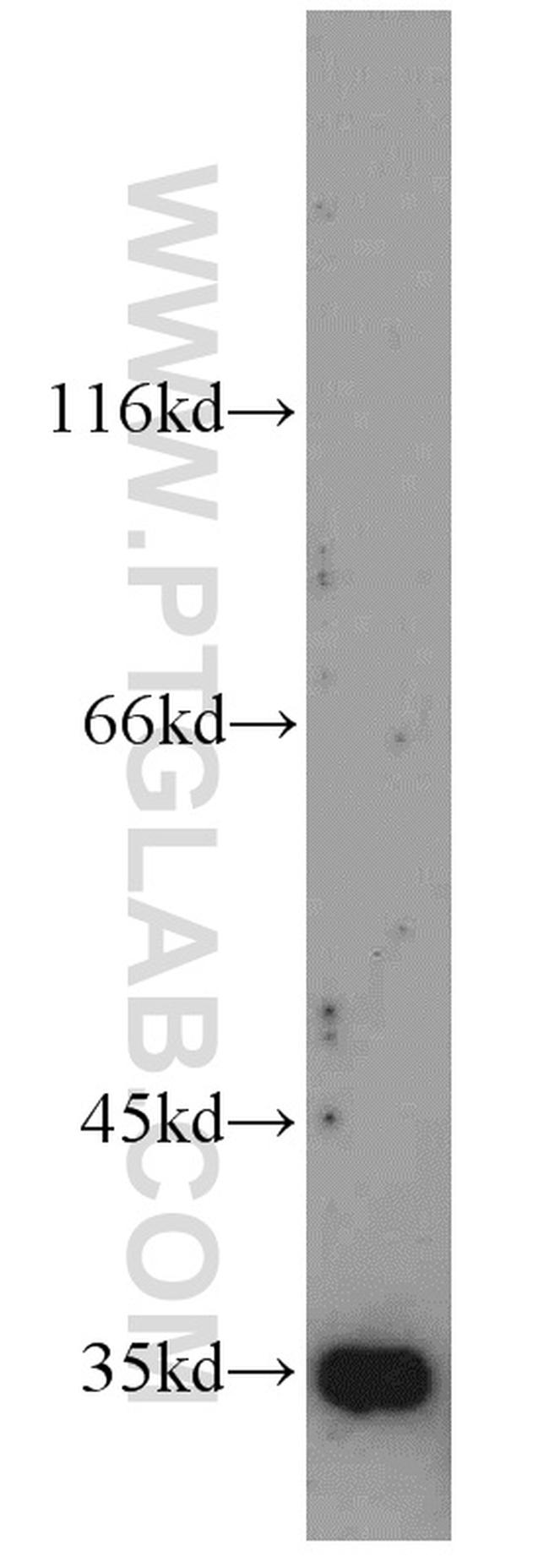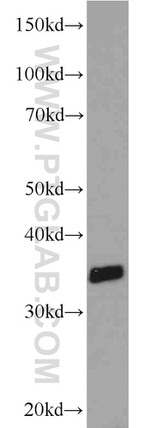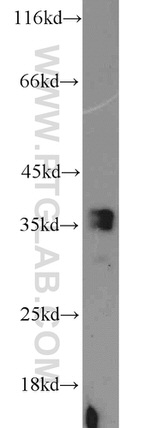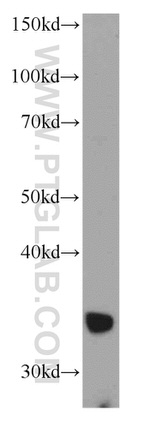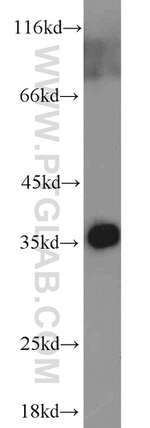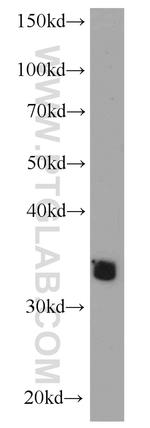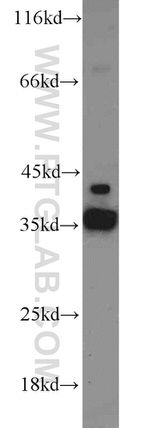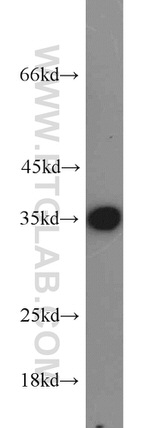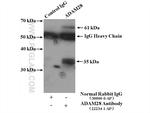Search Thermo Fisher Scientific
Product Details
22234-1-AP
Species Reactivity
Published species
Host/Isotype
Class
Type
Immunogen
Conjugate
Form
Concentration
Purification
Storage buffer
Contains
Storage conditions
Shipping conditions
Product Specific Information
Immunogen sequence: TSEECTNIC CDAKTCKIKA TFQCALGECC EKCQFKKAGM VCRPAKDECD LPEMCNGKSG NCPDDRFQVN GFPCHHGKGH CLMGTCPTLQ EQCTELWGPG TEVADKSCYN RNEGGSKYGY CRRVDDTLIP CKANDTMCGK LFCQGGSDNL PWKGRIVTFL TCKTFDPEDT SQEIGMVANG TKCGDNKVCI NAECVDIEKA YKSTNCSSKC KGHAVCDHEL QCQCEEGWIP PDCDDSSVVF HFSIVVGVLF PMAVIFVVVA MVIRHQSSRE KQKKDQRPLS TTGTRPHKQK RKPQMVKAVQ PQEMSQMKPH VYDLPVEGNE PPASFHKDTN ALPPTVFKDN PMSTPKDSNP KA (425-775 aa encoded by BC136478)
Target Information
This gene encodes a member of the ADAM (a disintegrin and metalloprotease domain) family. Members of this family are membrane-anchored proteins structurally related to snake venom disintegrins, and have been implicated in a variety of biological processes involving cell-cell and cell-matrix interactions, including fertilization, muscle development, and neurogenesis. The protein encoded by this gene is a lymphocyte-expressed ADAM protein. Alternative splicing results in two transcript variants. The shorter version encodes a secreted isoform, while the longer version encodes a transmembrane isoform.
For Research Use Only. Not for use in diagnostic procedures. Not for resale without express authorization.
Bioinformatics
Protein Aliases: a disintegrin and metalloprotease domain 28; a disintegrin and metalloproteinase; a disintegrin and metalloproteinase domain 28; ADAM; ADAM 28; ADAMs; disintegrin 1; Disintegrin and metalloproteinase domain-containing protein 28; eMDC II; Epididymal metalloproteinase-like, disintegrin-like, and cysteine-rich protein II; epididymial metalloproteinase-like, disintegrin-like, and cysteine-rich protein II; MDC-L; metalloendopeptidases; metalloproteinase-disintegrin domain containing protein TECADAM; Metalloproteinase-like, disintegrin-like, and cysteine-rich protein L; metalloproteinase-like, disintegrin-like, and cysteine-rich protein-L; TECADAM; Thymic epithelial cell-ADAM
Gene Aliases: ADAM 28; ADAM23; ADAM28; C130072N01Rik; D430033C21Rik; Dtgn1; eMDC II; eMDCII; MDC-L; MDC-Lm; MDC-Ls; MDCL; TECADAM
UniProt ID: (Human) Q9UKQ2, (Mouse) Q9JLN6
Entrez Gene ID: (Human) 10863, (Mouse) 13522

Performance Guarantee
If an Invitrogen™ antibody doesn't perform as described on our website or datasheet,we'll replace the product at no cost to you, or provide you with a credit for a future purchase.*
Learn more
We're here to help
Get expert recommendations for common problems or connect directly with an on staff expert for technical assistance related to applications, equipment and general product use.
Contact tech support
